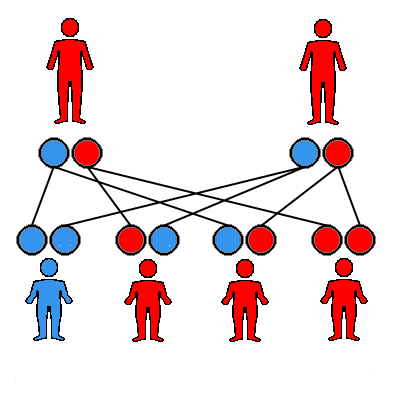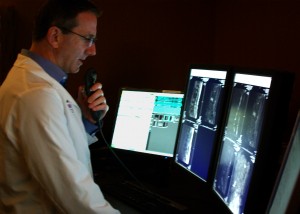Geneticist
A medical geneticist is trained in diagnostic and therapeutic procedures for patients with genetically-linked diseases. These diseases are related to problems with dominant and recessive genes (Fig. 1).
Figure 1. This chart show how dominant genes (left red, right blue) are passed to children by the parent who carries a specific trait
Practice
Geneticists use exams that find out about cells and genes, also known as cytogenic tests. Other tests used by geneticists may also include X-ray, ultrasounds, and other radiologic exams (Fig. 2), and lab-tests for biochemical testing. These tests and consultations are known as specialized genetic counseling. Based on the information gathered through these tests and other information, specialists then work with families to implement treatment or follow-up therapies known as therapeutic interventions. Medical geneticists can also use information gathered through tests to provide prevention options through prenatal diagnosis.
The work of medical geneticists also cover large-scale activities that help on a public health level, for example, large screening programs for newborns, for illnesses like phenylketonuria, or PKU (Fig. 3). This disease is due to an inborn error of metabolism, that is, a disease where children cannot absorb protein in foods and require a special diet for life. Other examples where geneticists can help is for blood diseases; for example, hemoglobinopathies, for chromosome abnormalities and neural tube defects.



0 comments
Kick things off by filling out the form below.
You must log in to post a comment.